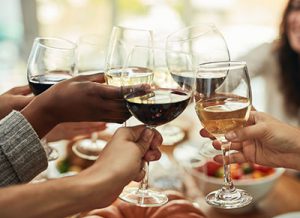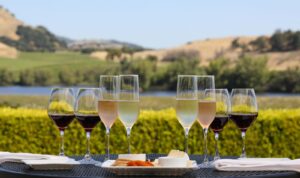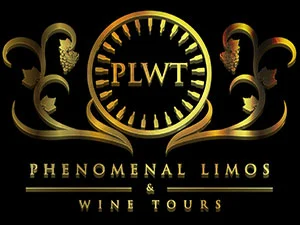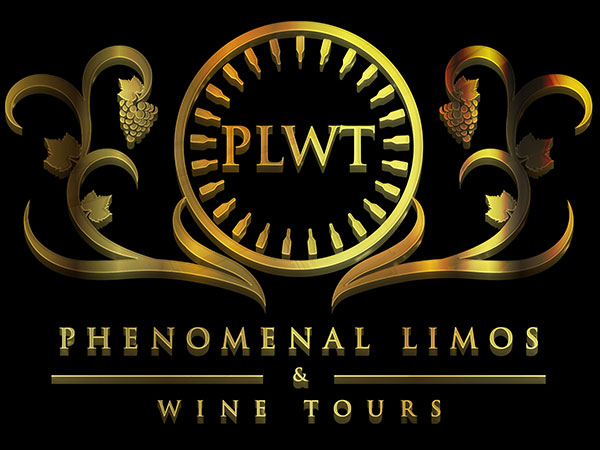
Wineries and tasting rooms are key components of the vibrant and ever-growing wine industry. Wineries are establishments that produce wine, often sourcing grapes from their own vineyards or nearby growers. Tasting rooms, on the other hand, are dedicated spaces within wineries where visitors can sample various wines and learn about their production processes. These venues offer an immersive experience for wine enthusiasts, providing an opportunity to explore different wine varietals, learn about winemaking techniques, and enjoy the sensory pleasures of wine tasting.
One common characteristic shared by many wineries and tasting rooms is their relatively early closing time, often around 5 PM. This closing time may seem early compared to other hospitality or entertainment venues, which often extend their operating hours into the late evening. Understanding the reasons behind this early closure is crucial to appreciating the unique dynamics and operational considerations within the wine industry.
The History Of Wineries

Wine production has a rich history that spans thousands of years, with its origins dating back to ancient civilizations. However, the modern wine industry as we know it today began to take shape in the 19th and 20th centuries with advancements in viticulture, winemaking techniques, and distribution channels.
In the early days of winemaking, operating hours for wineries and tasting rooms were often dictated by agricultural practices and the labor-intensive nature of vineyard operations. Vineyard work, including tasks such as pruning, harvesting, and tending to the vines, typically occurred during daylight hours. As a result, wineries traditionally operated within a narrower time frame, often aligning their opening and closing hours with the natural rhythms of agricultural work.
Over time, the wine industry has witnessed significant changes in consumer behaviors and market dynamics, leading to a shift towards earlier closing times for wineries and tasting rooms. One major factor contributing to this shift is the evolving patterns of consumer preferences and leisure activities. Many wine enthusiasts and tourists visiting wine regions often plan their itineraries during the day, seeking to make the most of their visit by exploring multiple wineries and enjoying wine tastings.
Furthermore, evenings are often reserved for dining out or engaging in other social activities, which may limit the availability and willingness of customers to visit wineries during later hours. To cater to the preferences and schedules of their target audience, wineries and tasting rooms have adjusted their closing times to align with the customary leisure hours of their visitors, which commonly end around 5 PM.
Operational and logistical considerations also play a role in the shift towards earlier closing times. Vineyard management, wine production, and other backend processes require significant time and resources. By closing earlier, wineries can ensure that their staff has ample time to complete essential tasks, clean the premises, restock inventory, and prepare for the following day’s operations.
Why Vineyard Operations And Production Close At 5 PM
Vineyard management is a critical aspect of wine production, and it involves various labor-intensive tasks that require careful attention and timely execution. From pruning and trellising to pest control and canopy management, vineyard workers dedicate significant effort to ensure the health and quality of the grapevines. These tasks directly impact the yield and flavor profile of the grapes, which, in turn, influence the overall quality of the wines produced.
Given the labor-intensive nature of vineyard work, wineries allocate a substantial amount of time and resources to maintain their vineyards throughout the growing season. This includes regular inspections, vineyard maintenance, and the implementation of sustainable farming practices. Closing at 5 PM allows wineries to allocate sufficient daylight hours to manage their vineyards effectively and carry out these necessary tasks.
The wine industry is intimately connected to the agricultural cycle, and vineyard work is predominantly conducted outdoors. Daylight plays a crucial role in ensuring the productivity and safety of vineyard operations. However, the availability of daylight hours varies throughout the year, with shorter days during the winter months.
Closing wineries and tasting rooms at 5 PM allows winery staff to make the most of the daylight hours during the peak seasons. It ensures that vineyard tasks can be accomplished efficiently while minimizing the risk of working in low-light conditions or darkness. By aligning their closing time with the natural daylight cycle, wineries can optimize their operational workflow and maintain the well-being of their staff.
Preferred Wine Tasting Times
 Understanding consumer preferences is crucial for wineries and tasting rooms to cater to their target audience effectively. Numerous studies have indicated that wine enthusiasts often prefer visiting wineries and tasting rooms during the day. Research surveys have highlighted factors such as better lighting conditions, a relaxed atmosphere, and the ability to fully appreciate the sensory experience of wine tasting in natural daylight.
Understanding consumer preferences is crucial for wineries and tasting rooms to cater to their target audience effectively. Numerous studies have indicated that wine enthusiasts often prefer visiting wineries and tasting rooms during the day. Research surveys have highlighted factors such as better lighting conditions, a relaxed atmosphere, and the ability to fully appreciate the sensory experience of wine tasting in natural daylight.
Furthermore, studies have shown that wine tourism is a popular leisure activity, with visitors often planning their trips to wine regions during specific hours of the day. This preference is driven by the desire to explore multiple wineries, learn about different wine varieties, and engage in vineyard tours and tastings. As a result, wineries and tasting rooms adjust their closing times to align with these consumer preferences, ensuring they can attract and accommodate the highest number of visitors during their peak operating hours.
In addition to consumer preferences, wineries and tasting rooms consider the typical leisure time patterns and evening commitments of their target audience. Evenings are often reserved for social activities, such as dining out, attending events, or spending time with family and friends. Many consumers have pre-existing commitments during the evening hours, making it less likely for them to visit wineries or tasting rooms during that time.
By closing at 5 PM, wineries can capture the attention of customers who prefer to engage in wine-related activities earlier in the day. This strategic approach maximizes the chances of attracting a larger audience, including tourists, day-trippers, and local visitors, who can comfortably incorporate a visit to a winery or tasting room into their daytime plans. The earlier closing time ensures that customers can enjoy their wine tasting experience without feeling rushed or limited by other commitments they may have during the evening.
To provide exceptional customer experiences, wineries and tasting rooms strive to align their operating hours with the schedules of their target audience. By closing around 5 PM, wineries can cater to customers who have work commitments during the day but still want to enjoy a wine tasting experience before their evening plans. It allows individuals to visit wineries after work or during their leisure hours, creating a balance between their daily routines and their desire to engage in wine-related activities.
Wineries Closing At 5 PM Shows Staffing And Labor Considerations
When determining operating hours, wineries and tasting rooms must consider the availability and well-being of their staff. The wine industry often relies on a combination of full-time employees, part-time workers, and seasonal hires.
By closing earlier, winery employees have the opportunity to spend their evenings with family and friends or pursue personal interests outside of work. This consideration helps attract and retain skilled employees who value a healthy work-life balance, ultimately contributing to a more productive and motivated workforce.
Operating a winery involves various tasks beyond wine production, such as serving customers, conducting tours, and managing administrative duties. Closing at 5 PM provides wineries with sufficient time to manage the workload effectively and ensure that all necessary tasks are completed by the end of the business day.
Staffing costs are a significant consideration for wineries and tasting rooms. By closing at 5 PM, wineries can optimize their staffing levels and minimize expenses associated with extended operating hours. It allows wineries to match staffing resources with customer demand during peak hours, reducing the need for excessive staffing during slower periods.
Additionally, closing earlier may enable wineries to leverage part-time and seasonal employees more efficiently. They can schedule their shifts during the peak operating hours when customer traffic is highest, maximizing the utilization of staff resources while managing costs effectively.
Implementing cost-effective staffing strategies is crucial for wineries, especially smaller establishments or those in competitive markets. Closing at 5 PM enables wineries to strike a balance between providing excellent customer service and maintaining financial sustainability.
Regulatory And Permitting Factors Of Wineries
Wineries and tasting rooms are subject to local and state regulations regarding their operating hours. These regulations are often in place to manage noise levels, and traffic congestion, and maintain the harmony between winery operations and the surrounding community. Local zoning ordinances and planning regulations may specify the permitted hours of operation for wineries and tasting rooms.
Wineries must ensure compliance with these regulations to avoid fines, penalties, or potential legal disputes. As a result, wineries often adhere to the common closing time of 5 PM to align with the stipulated operating hours allowed by local and state authorities.
Operating a winery or tasting room involves obtaining various licenses and permits. These licenses and permits ensure that the winery operates within the legal framework, meets health and safety standards, and complies with applicable regulations. Licensing requirements may vary depending on the jurisdiction, but they often include permits related to alcohol sales, food service, occupancy limits, and more.
To maintain compliance, wineries and tasting rooms must adhere to the specific conditions and restrictions outlined in their licenses. This may include adherence to certain operating hours, noise limitations, or other provisions dictated by the licensing authorities. By closing at 5 PM, wineries can ensure they are operating within the boundaries of their licenses and remain in good standing with regulatory agencies.
Wineries must carefully evaluate their business objectives and customer base to determine the optimal operating hours that align with legal restrictions. They need to consider factors such as customer demand, staffing resources, profitability, and community relations while adhering to applicable laws and permits.
In cases where wineries may desire extended operating hours beyond 5 PM, they may need to go through a formal process to seek variances or modifications to their licenses or permits. This often involves engaging with regulatory agencies, local governing bodies, and community stakeholders to demonstrate the necessity and benefits of the requested changes.
Touring Wineries From Phenomenal Limos & Wine Tours
 At Phenomenal Limos & Wine Tours, we understand the reasons why wineries and tasting rooms typically close at 5 PM. We have seen that it is a result of various factors. Firstly, the labor-intensive tasks involved in vineyard management require limited daylight hours and necessitate a structured work schedule. We recognize the importance of providing winery staff with a healthy work-life balance while ensuring the smooth operation of the vineyard.
At Phenomenal Limos & Wine Tours, we understand the reasons why wineries and tasting rooms typically close at 5 PM. We have seen that it is a result of various factors. Firstly, the labor-intensive tasks involved in vineyard management require limited daylight hours and necessitate a structured work schedule. We recognize the importance of providing winery staff with a healthy work-life balance while ensuring the smooth operation of the vineyard.
Secondly, we acknowledge that wineries and tasting rooms have operational needs and time constraints that need to be considered. Managing the workload, scheduling employee shifts, and ensuring cost-effective staffing strategies are essential to maintaining efficiency and delivering exceptional experiences to our customers.
Furthermore, we have conducted studies on consumer preferences and understand the significance of aligning with our customers’ schedules. We have found that many wine enthusiasts prefer visiting wineries and tasting rooms during the day, taking advantage of the better lighting conditions and a more relaxed atmosphere. By closing at 5 PM, we aim to cater to our customer’s leisure time patterns and ensure that they can fully enjoy their wine tasting experience without feeling rushed or limited by evening commitments.
While we acknowledge the potential shifts in the future, driven by evolving customer demands and market dynamics, we believe in striking a balance between operational needs and customer expectations. We constantly evaluate the feasibility of adjusting our operating hours to better accommodate our customers. However, we also recognize the importance of maintaining compliance with local and state regulations, managing staffing resources effectively, and ensuring the sustainability of our operations.
At Phenomenal Limos & Wine Tours, we are committed to providing outstanding wine tour experiences that meet your needs and preferences. Whether you join us for a day trip to a winery or indulge in a private wine tasting outside of regular operating hours, we strive to create unforgettable memories for you. We understand that the wine industry is dynamic, and we are prepared to adapt to changes while maintaining the exceptional service and experiences that our customers deserve.
Thank you for choosing Phenomenal Limos & Wine Tours. We look forward to taking you on an extraordinary wine tour and providing you with an experience that exceeds your expectations. Cheers to unforgettable moments and remarkable wines!


